As part of the university’s annual celebration in September, HM Queen Margrethe II Travel Grants will be awarded to five talented students at Aarhus University.
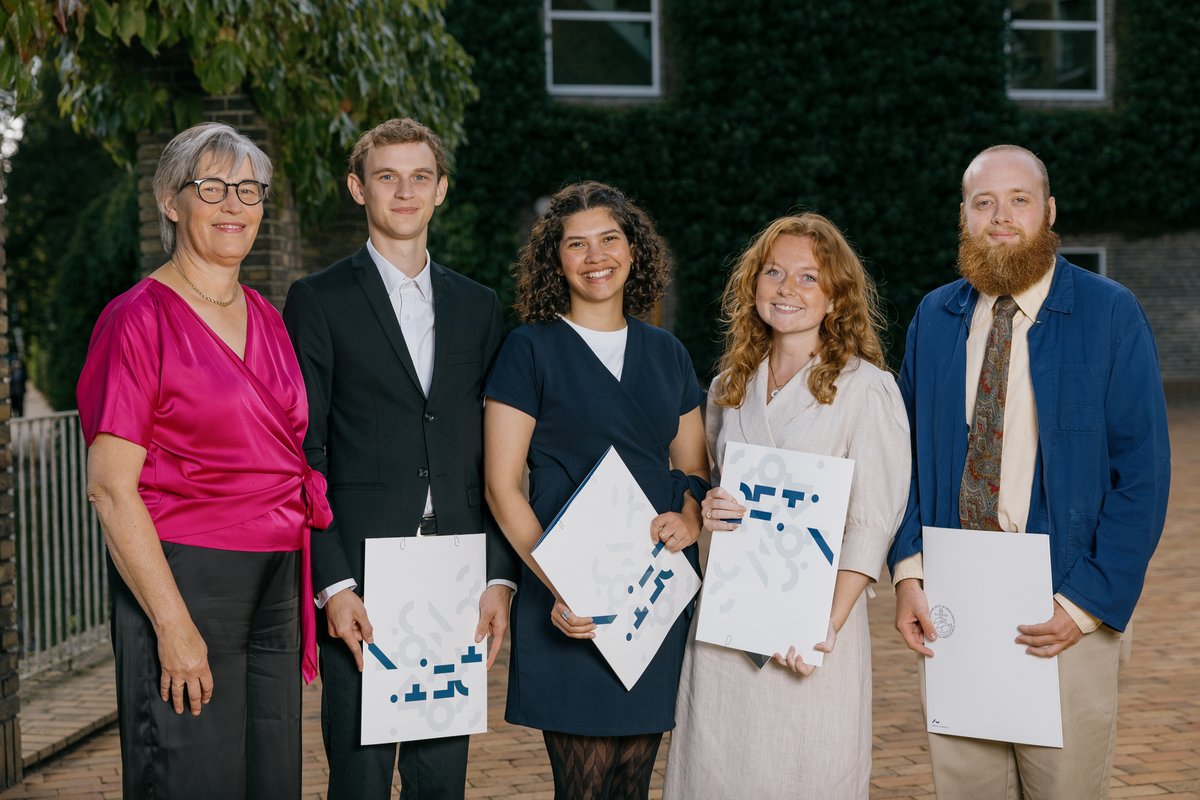
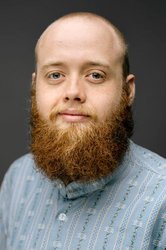
Johan Trap-Godau wrote his Bachelor’s project on cogs – a special type of ship used in the Middle Ages. He investigated what artefacts found in shipwrecks can tell us about trade and networks in the fourteenth century.
Johan Trap-Godau is also active in several student associations and is an administrative student assistant at UrbNet – a research centre that explores the evolution of urban networks from the Hellenistic period to the Middle Ages.
In his Master’s thesis, Johan Trap-Godau intends to expand on his previous research by conducting comparative studies of artefacts found on ships from former Hanseatic cities. The HM Queen Margrethe II’s Travel Grant will allow him to travel to museums in Germany or Poland, or to Hanseatic trading posts in Bruges or Bergen, where he will have access to large archaeological collections and data to help explain how maritime trade networks in the Middle Ages were connected.
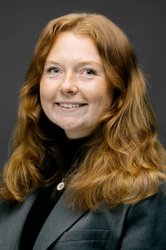
Amalie Andkær Pedersen is particularly interested in political behaviour, including the effect that party affiliation has on voters’ political attitudes and what underlies the polarisation of voters. She is also interested in advanced statistics and quantitative methods.
Amalie Andkær Pedersen works for the King Frederik Center for Public Leadership and as a student instructor on two methodological courses at Aarhus University. She has also volunteered for Aarhus BSS’s buddy programme for exchange students, worked for a parliamentary candidate’s campaign, and tutored both primary and upper-secondary school students.
The HM Queen Margrethe II’s Travel Grant will help Amalie Andkær Pedersen apply to Sciences Po in Paris, a renowned political science institute that offers prestigious courses in international and public politics.
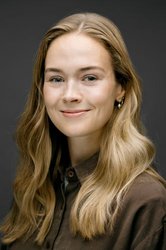
Amalie Quist Rousing devotes most of her research time to cystic fibrosis – an inherited, genetic disease that affects the lungs. She has already co-authored a number of scientific papers on the subject, presented at several international academic conferences, and is a research assistant at the Department of Biomedicine and project coordinator for a clinical study at Aarhus University Hospital.
Amalie Quist Rousing has completed clinical training at the Ilulissat Hospital in Greenland, and she currently works for the International Medical Cooperation Committee as a local leader in the Ashipti project, which works to prevent lifestyle diseases through a partnership project in Ghana.
She also volunteers at Bamsehospitalet, which aims to improve children’s relationship with the healthcare system.
The HM Queen Margrethe II’s Travel Grant will help Amalie Quist Rousing finance a trip to Australia, where she will complete clinical training in an emergency department in Brisbane.
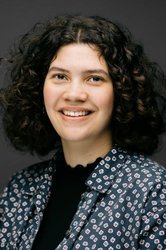
Rebecca Fjord Jørgensen is fascinated by physiology, especially the link between the molecular and cellular levels and how the body functions as a whole. She wrote her Bachelor's project on myoglobin, the oxygen-carrying protein found in muscles, and she plans to write her Master's thesis within comparative biology, which explores physiology across organisms – for example, by studying the digestive system of reptiles, we can learn more about the digestive system of humans, or by examining the eyes of fish or birds, we can discover more about the general structure of the eye.
Rebecca Fjord Jørgensen also plays an active role in the social side of student life. She is a member of the revue theatre group at the Department of Biology, the Aarhus student rowing club, and the rowing club’s social society.
The HM Queen Margrethe II’s Travel Grant enabled Rebecca Fjord Jørgensen to study at the Department of Pharmacology at the University of São Paulo, Brazil. During her stay, she investigated how hormones are released in the endothelium – the inner layer of blood vessels – and learned new techniques to determine blood vessel function.
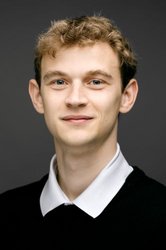
Carl Johan von Düring Lausen is a member of AU’s interdisciplinary team for Formula Student, an international student engineering competition where students develop and build electrically powered racing cars. As one of the students behind the interdisciplinary student-run organisation, he helps develop and run projects ranging from mathematics-economics and international business communication to mechanical and electrical engineering. By working on these projects, students gain experience and skills in sustainable technologies.
The HM Queen Margrethe II Travel Grant will give Carl Johan von Düring Lausen the opportunity to travel in connection with his Bachelor's project and to participate in Formula Student 2025 with the AU Dolphins at the TT Circuit Assen racetrack in the Netherlands.
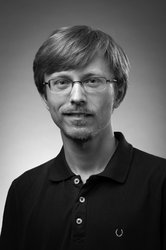
Frederik Søren Nielsen is particularly interested in the urban space of Late Antiquity, which was the topic of his Bachelor’s project. Throughout his studies, he has conducted several field trips, including on the Danish-Italian excavations in Francavilla Marittima in southern Italy. And, since 2022, he has been affiliated with the Danish Halikarnassos Project in the Turkish city of Bodrum, where, among other things, he has helped document the archaeological finds.
In his Master’s thesis, which is based on the cities of Asia Minor, Frederik Søren Nielsen will investigate how we can understand ruins and abandoned places in the cities of Late Antiquity and the role that ruins play in our experience of the urban space.
The HM Queen Margrethe II Travel Grant will enable Frederik Søren Nielsen to conduct a field trip in western Turkey, where he can investigate the places that will feature in his Master’s thesis.
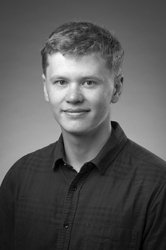
Tobias Rehoff Hyldahl is interested in political behaviour and comparative politics. He has written major assignments on how anger affects the formation of voters’ political opinions, and how hateful social media users become more extreme when they are censored and moved to alternative platforms.
Tobias Rehoff Hyldahl has worked as a student assistant on two research projects and as a student instructor on the General Political Science and Methods programme. He has also volunteered as a coach at Politiken’s school for criticism and debate.
Tobias Rehoff Hyldahl will use the HM Queen Margrethe II Travel Grant to help fund his study abroad at the University of California, Berkeley. UC Berkeley is home to some of the world’s leading political science researchers, and he hopes to draw on their knowledge before he returns to Aarhus to write his Master’s thesis.
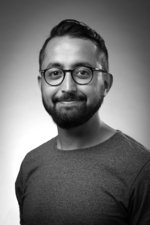
Mohsen Redda is already pursuing a research career and, in his upcoming PhD project, he will develop earlier and more precise methods to diagnose and monitor glioblastoma, the most common type of brain tumour. During his research year at the Magnetic Resonance Research Centre, he has published abstracts and presented these at several international conferences.
Throughout his studies, he has worked as a student advisor for new medical students and engaged in work for boards and associations. He has also worked as a student instructor on the medical degree programme since 2018, where students have repeatedly named him student instructor of the year.
The HM Queen Margrethe II Travel Grant will enable Mohsen Redda to complete a research stay at Cambridge University, where he will conduct clinical work on brain tumours and molecular MR imaging, which will be of great value to his upcoming PhD project.
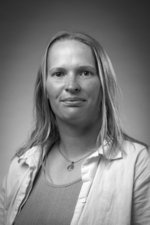
Signe Bjerg Kristensen is driven by the desire to find out how the body works. How do the body’s cells fight an infection? And what are the molecular-biological mechanisms behind disease?
Alongside her studies, Signe Bjerg Kristensen has been a student advisor for new students. She is also an active member of the CELLskab student association at the Department of Molecular Biology and Genetics and works at the department’s Visiting Service, where she teaches upper-secondary school pupils how to conduct laboratory work.
The HM Queen Margrethe II Travel Grant will enable Signe Bjerg Kristensen to study at the Norwegian University of Science and Technology. She is looking forward to experiencing another university that also excels in the natural sciences.
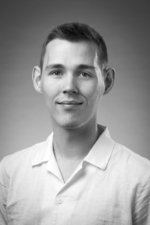
Nikolaj Kühne Jakobsen is interested in ground-breaking technologies and has helped to develop an email client that employs a user-defined filtering system to automatically categorise and delete emails. He has also engaged in a variety of hobby projects that range from robot technology to the Internet of Things and algorithms on quantum computers.
He is employed as a research assistant in the Section for Software Engineering & Computing Systems, where he is focusing on the project Reducing the Cyber Attack Surface (RCAS). In 2023, he is due to publish two articles – one as main author and one as co-author.
Nikolaj Kühne Jakobsen intends to use the HM Queen Margrethe II Travel Grant to study at the Massachusetts Institute of Technology (MIT) in the USA. He hopes to visit the research group directed by Professor Daniel Jackson, which examines how concept specifications can be used to help large language models like ChatGPT generate more effective code.